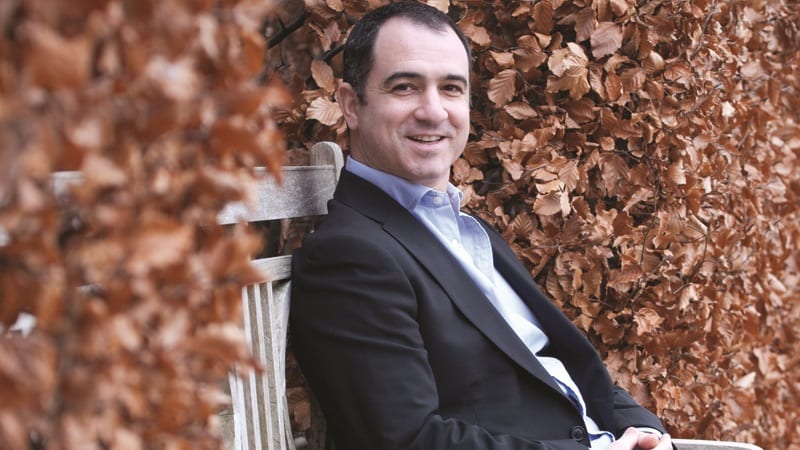Mark Barnett is hopeful recent market volatility will herald the end of a momentum-driven bull market in which he has underperformed.
The Edinburgh Investment Trust has lost investors 2.7% over a three-year period ranking it fourth quartile in the UK Equity Income sector, which delivered average returns of 14.5%, according to Trustnet. The net asset value of the £1.2bn trust climbed 14.5% over the period.
In the half-year results for the closed-ended fund, Barnett (pictured) said momentum style investing had been a “powerful characteristic” of the multi-year bull market, but recent volatility suggested that was set to shift. “It is to be hoped that this change will herald a return to valuation based investing with an emphasis on fundamental company analysis.”
Apple stocks entered official bear market territory on Tuesday leading a global sell-off in tech stocks. It follows falls of 3.29% in the S&P 500 in October, also led by large-cap tech, which was the steepest one-day fall since February volatility.
Growth linked to abundance of liquidity
Jason Hollands said time is needed to show whether the shift in style leadership is durable or short lived.
Hollands attributed growth’s performance to the abundance of liquidity provided by central banks in the aftermath of the global financial crisis. In 18 months, global monetary policy has gone from peak provision liquidity to quantitative tightening, he said.
Concerns the earnings cycle has peaked also contributed to volatility, he said. “Historically that can be a point at which value starts to eclipse growth and momentum as investors essentially recalibrate more towards current fundamentals rather than future potential because essentially they are less sure about the outlook.”
Barnett remains hooked on tobacco
Pointing to investment themes that underpin the Edinburgh Investment Trust portfolio, Barnett named tobacco as an industry that he considered attractively valued, alongside oil majors.
This is despite the fact tobacco stocks came under pressure in November due to a clamp down from the US regulator on menthol cigarettes and cigars. British American Tobacco fell 10.6% after Barclays analysts estimated that its US sales of menthol cigarettes could be responsible for up to a quarter of its annual underlying earnings.
It is the second-largest stock in the Edinburgh Investment Trust, accounting for 5.7% of the portfolio. Altria and Imperial Brands represent 3.5% and 3.2% respectively.
But Barnett said tobacco stocks should continue to provide a reliable income source due to pricing power, cash conversion and product innovation. He added: “Furthermore, the steep decline in the valuation of this sector leaves the shares looking, increasingly, attractive long-term investments.”
Other factors that played into Barnett’s investment thesis were a modest increase in sterling revenues and exposure to stocks not correlated with regular business cycles.
Edinburgh vs Perpetual Income and Growth
Both Barnett’s investment trusts released results this week with Perpetual Income and Growth reporting concerns about a widening discount. Its shares current trade at 11% below NAV while the Edinburgh Investment Trust’s discount is slightly narrower at 8.3%.
The share price on Perpetual Income and Growth rose only 4.3% in the six months to September, compared to NAV growing 7.7%. At Edinburgh Investment Trust shares rose 7.6% compared to an 8.7% improvement in NAV. The FTSE All Share index, the benchmark for both investment trusts, rose 8.3%.
Speaking at an Association of Investment Companies presentation this month, BMO Managed Growth managed Peter Hewitt said he had recently sold Edinburgh Investment Trust because he already had exposure to Barnett through Perpetual Income and Growth and he found the trusts very similar.
Bar a couple of names, the top-30 holdings consists of the exact same stocks in each investment trust albeit with different allocations. The Edinburgh Investment Trust holds 55 names compared to 75 in the Perpetual Income and Growth trust. Gearing on the trusts is 10% and 16% respectively.
Hewitt said the Invesco manager had “gone through a tough time”. “I like Mark Barnett and I want to run it long term but I just felt it was too much so I let Edinburgh go,” he said.
Tilney does not include either the Edinburgh or the Perpetual Income and Growth trusts on its buylist, Hollands said.










